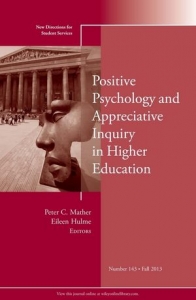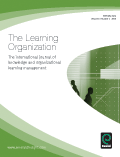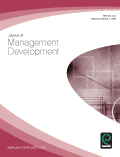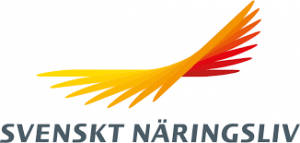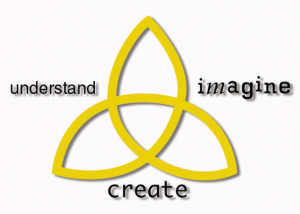
Appreciative Inquiry Resources features a rediscovery of classic and new resources for your use. Resources will include list-serves, books, journal articles, book chapters, DVDs, websites, blogs, podcasts, etc. … all in one place useful for learning more about AI to help with your consulting practice, internal work, teaching, training and extending your knowledge base and resources.
The Spring 2017 issue of AI Practitioner focuses on AI and strengths-based disciplines in business schools, businesses and communities.
The Resources column editors of the Spring 2017 issue of AI Practitioner have brought together resources relating to Appreciative Inquiry and strengths-based disciplines, and the ways in which they are being integrated in business schools in particular, but also in businesses that are game changers and in communities worldwide.
Books
Positive Psychology and Appreciative Inquiry in Higher Education
Peter C. Mather and Eileen Hulme (2013)
John Wiley & Sons
This book explores how positive psychology and AI can contribute to the mission of higher education, presenting a variety of strategies for bolstering student learning and development. During a time of daunting challenges, positive psychology and AI can help leverage higher education’s assets to optimize the potential of students, faculty and staff.
Articles and Papers
Universities: Can they be considered as learning organizations? A preliminary micro-level perspective
Ozlem Bak (2012)
The Learning Organization, 19 (2), 163–172
DOI: http://dx.doi.org/10.1108/09696471211201515
This study explores a department in a UK higher education institute based on Senge’s five characteristics of learning organizations. The findings show that learning‐ organization characteristics were present.
Appreciative Inquiry as a Model for Assessing the Value of Business School Education
Michelle Browning (2014)
Journal of Business and Educational Leadership (1) 64
The focus of the research is to discuss current methods and challenges associated with assessing student learning in business school education, with AI highlighted as an effective alternative method for assessing the value of the business school education reflected through student learning.
Mobilizing Change in a Business School Using Appreciative Inquiry
Gina Grandy and Judith Holton (2010)
The Learning Organization, 17(2), 178–194
DOI: http://dx.doi.org/10.1108/09696471011019880
The purpose of this paper is to explore how AI as a pedagogical tool can be generative in creating opportunities for development and change in a business school context. The experiential nature of the AI process was successful in encouraging collaboration and team building, and empowering individuals toward a collection vision.
Developing Globally Responsible Leaders in Business Schools: A Vision and Transformational Practice for the Journey Ahead
Katrin Muff (2013)
Journal of Management Development, 32(5), 487–507
Emerald Group Publishing Limited, pp.169–195.
DOI: http://dx.doi.org/10.1108/S2055-364120140000002033
Most educational activities still take place in a conservative format of the hierarchical teacher–student relationship in rather traditional educational facilities. But students are motivated and engaged when they understand why information is important for them. Through an inquiry-based approach, abstract information becomes tangible and contextualized. Although addressing courses for architecture students, the inquiry-based learning and teaching experiences from these courses will inform a larger, more general audience interested in the subject matter.
The Role of Business in Society
Göran Norén (2004)
https://www.svensktnaringsliv.se/migration_catalog/the-role-of-business-in-society_532870.html/BINARY/The%20role%20of%20business%20in%20society
This report shares with readers how business is developing society globally, and continues to be the cornerstone of social development and welfare The interesting aspect of the report is the integration of benefit to business and society, by identifying the drivers for organizations’ commitment to community, and how such commitment reduces business risks and facilitate the growth of business.
Avon Products
Lynn Sharp Paine (2000)
Harvard Business School Case 301-059
http://www.hbs.edu/faculty/Pages/item.aspx?num=27576
This teaching case demonstrates the use of AI for unifying vision for Avon Products which, through integration achieved at the organizational level, created world benefit, albeit indirectly.
Websites and blogs
What is the role of business in society?
Corporate reporting blog (2011)
http://pwc.blogs.com/corporatereporting/2011/09/what-is-the-role-of-business-in-society.html
This blog has a strong message: “business is about sustaining the well-being of all those who interact with it … and in the long run its success will, in my view, be central to society’s success.”
GameChangers 500
Team GameChangers500
http://gamechangers.co//
This organization ranks and publishes the best practices of the leading For-Benefit organizations so other enterprises and entrepreneurs can access innovative techniques on topics like profit sharing, being a zero-waste office, or writing a Theory of Change.
ST Foundation
Team ST Foundation
http://www.stfoundation.org
This website reports on ST Foundation, a non-profit organization based in Geneva, established by STMicroelectronics for globally unifying people using digital education. The foundation operates in both in developing countries where there is a need to overcome social, economic and technological inequalities to achieve human progress and economic growth, and in countries where STMicroelectronics has a strong presence, including specific areas of developed countries where economic distress persists.
Imagine Chicago
Team Imagine Chicago
http://www.imaginechicago.org/how.html
This website provides details about ‘Imagine Chicago’ – a non-profit organization created and dedicated to cultivating hope and civic commitment. The organization works with change agents in organizations, institutions and communities, building local capacity with strength-based communication and development tools and opportunities for collaboration that make a difference.
Roopa Nandi
Roopa Nandi is Assistant Professor at GD Goenka World Institute I Lancaster University. Her research interest includes learning, organisational learning and spirituality. Her approach is premised on Appreciative Inquiry (AI) and she practices AI for organisational development and change.
Contact: nandiroopa@gmail.com
Hardik Shah, Ph.D.
Hardik is a faculty member at the IMT, Ghaziabad, India. His research interests include psychometric assessment, AI and OD. He has conducted executive development programs for over 6500 managers. He has co-edited one book on AI, ’Dynamics of AI-Concepts and Applications’, and written over 25 research papers.
Contact: hardiknim@gmail.com


